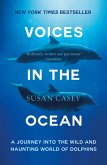Looks at how sea levels have risen over the last 150 years, and examines mankind's relationship with the most important resource on earth: water and the oceans. Follows on from "Elixir" and "Beyond The Blue Horizon".
Over the past fifteen thousand years the Earth has witnessed dramatic changes in sea level. The last Ice Age, when coastlines were more than 700 feet below modern levels, saw rapid global warming, and over the following ten millennia, the oceans climbed in fits and starts. These changes had little impact on the humans of the day, because the earth's population was then so small, and those few people were more mobile than today's static populations. Global sea levels stabilised about five thousand years ago. As urban civilisations developed in Egypt, Mesopotamia and South Asia the curve of inexorably rising seas flattened out. The planet's population boomed, and by the Industrial Revolution was five times its size two thousand years earlier. And as we crowded shorelines to live, fish and trade, we put ourselves at ever greater risk from the oceans. Changes in sea level are historically cumulative and gradual, but since 1860, the world has warmed significantly and the ocean's climb has accelerated again. From the Great Flood to Hurricane Sandy, The Attacking Ocean explores the changing complexity of the relationship between humans and the sea at their doorsteps, and shows how vulnerable our modern society is.
Hinweis: Dieser Artikel kann nur an eine deutsche Lieferadresse ausgeliefert werden.
Over the past fifteen thousand years the Earth has witnessed dramatic changes in sea level. The last Ice Age, when coastlines were more than 700 feet below modern levels, saw rapid global warming, and over the following ten millennia, the oceans climbed in fits and starts. These changes had little impact on the humans of the day, because the earth's population was then so small, and those few people were more mobile than today's static populations. Global sea levels stabilised about five thousand years ago. As urban civilisations developed in Egypt, Mesopotamia and South Asia the curve of inexorably rising seas flattened out. The planet's population boomed, and by the Industrial Revolution was five times its size two thousand years earlier. And as we crowded shorelines to live, fish and trade, we put ourselves at ever greater risk from the oceans. Changes in sea level are historically cumulative and gradual, but since 1860, the world has warmed significantly and the ocean's climb has accelerated again. From the Great Flood to Hurricane Sandy, The Attacking Ocean explores the changing complexity of the relationship between humans and the sea at their doorsteps, and shows how vulnerable our modern society is.
Hinweis: Dieser Artikel kann nur an eine deutsche Lieferadresse ausgeliefert werden.








